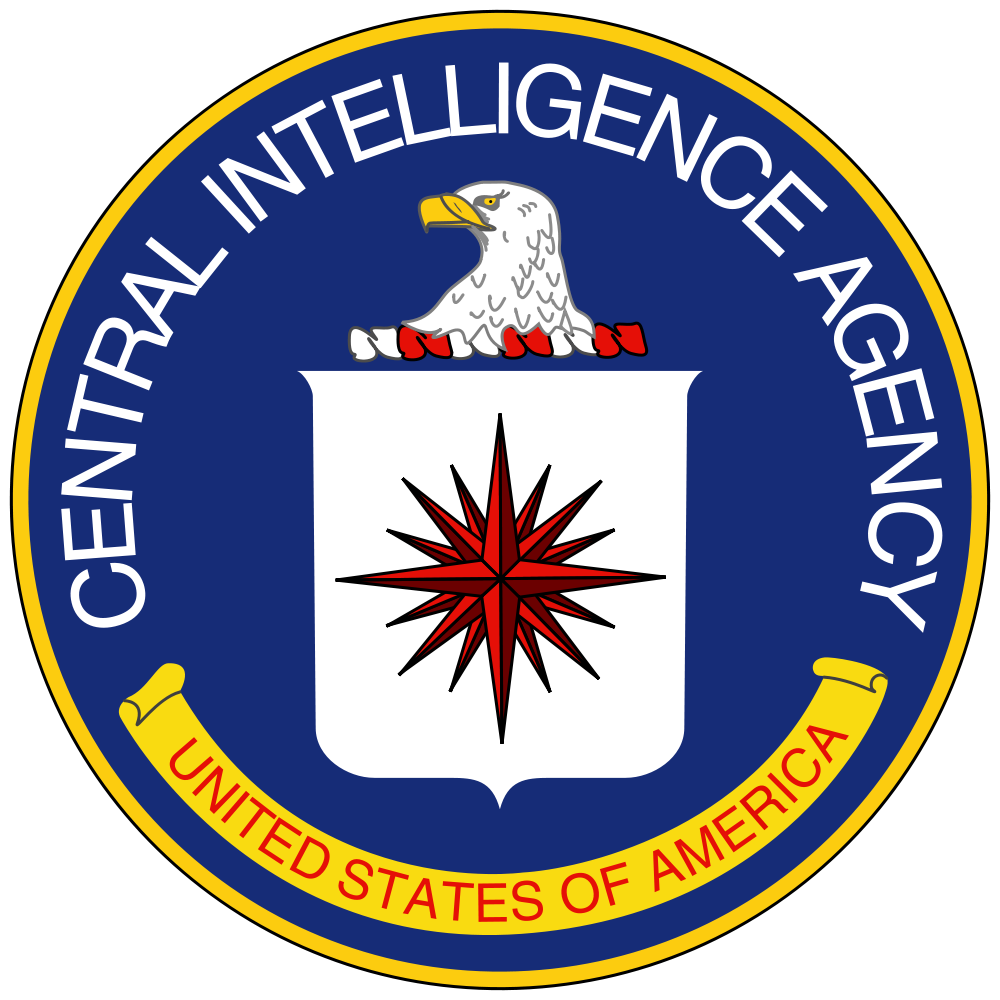Alright, let’s dive into something that’s been whispered about for decades—the Central Intelligence Agency, or CIA. Yep, that’s right, the CIA. This isn’t just some government office; it’s a powerhouse of intelligence, espionage, and global influence. You’ve probably heard about them in movies or read about them in thrillers, but how much do you really know? Buckle up, because we’re about to spill the tea on everything CIA-related.
Now, before we jump into the nitty-gritty, let me tell you this: the CIA isn’t just about spies and gadgets. It’s an organization that plays a massive role in shaping global politics, economics, and security. And guess what? It’s not all James Bond-like missions. There’s a lot more to it than what Hollywood portrays. So, if you’re curious about the real deal, you’re in the right place.
What we’re gonna do here is break down the CIA in a way that’s easy to digest, yet packed with info that’ll blow your mind. From its history to its operations, and even some juicy secrets that’ll make you question everything you thought you knew—this is gonna be one wild ride. So, grab your favorite drink, and let’s get started!
Read also:Mavericks Vs Pacers The Ultimate Showdown You Donrsquot Want To Miss
Table of Contents
- The CIA’s Fascinating History
- Mission and Objectives
- Organizational Structure
- Covert Operations and Spying
- Controversies and Scandals
- Tools and Technology
- How to Join the CIA
- Global Influence and Impact
- The Future of Intelligence
- Wrapping It Up
The CIA’s Fascinating History
Let’s rewind the clock and talk about how the CIA came to be. The Central Intelligence Agency was officially established in 1947 under the National Security Act. But here’s the kicker—it didn’t just pop up out of nowhere. Before the CIA, there was the Office of Strategic Services (OSS), which operated during World War II. When the war ended, the need for a centralized intelligence agency became clear, and voilà, the CIA was born.
Now, you might be wondering why the CIA was created in the first place. Well, after World War II, the world was a pretty chaotic place. The Cold War was brewing, and the U.S. needed an agency that could gather intel, analyze threats, and keep the nation safe. The CIA filled that role, and it’s been evolving ever since.
Key Milestones
Over the years, the CIA has been involved in some major events that shaped history. Here are a few:
- Bay of Pigs Invasion: A failed attempt to overthrow Fidel Castro in 1961. Yeah, not their finest hour.
- Iran-Contra Affair: A scandal in the 1980s where the CIA secretly sold weapons to Iran and used the funds to support Nicaraguan rebels. Oof, that was messy.
- September 11th Aftermath: Post-9/11, the CIA ramped up its efforts in counterterrorism, leading to some controversial programs.
Mission and Objectives
So, what exactly does the CIA do? Their mission is simple yet complex: protect national security by collecting, analyzing, and acting on intelligence. That’s a lot of big words, but let’s break it down.
Their main objectives include:
- Gathering intelligence on foreign governments, organizations, and individuals.
- Analyzing that intel to identify potential threats.
- Conducting covert operations to achieve strategic goals.
- Providing policymakers with the info they need to make informed decisions.
It’s like a giant puzzle, and the CIA is the one putting all the pieces together. Pretty cool, right?
Read also:Unlocking The World Of Rodtang A Comprehensive Guide To The Rising Star
Organizational Structure
The CIA is more than just a bunch of spies running around. It’s a highly structured organization with different branches, each responsible for specific tasks. Let’s take a quick look at how it’s set up:
Directorate of Operations (DO)
This is where the covert operations happen. Think James Bond stuff—undercover agents, secret missions, and all that jazz.
Directorate of Intelligence (DI)
These folks analyze the intel gathered by the DO and other sources. They’re the brains behind the operation, figuring out what it all means.
Directorate of Science and Technology (DS&T)
This is where the tech geeks shine. They develop tools and technologies to support intelligence operations. Think drones, satellites, and fancy gadgets.
Directorate of Support (DS)
They’re the backbone of the CIA, handling logistics, security, and everything else that keeps the agency running smoothly.
Covert Operations and Spying
Alright, let’s talk about the fun stuff—covert operations and spying. The CIA is famous for its undercover missions, and for good reason. These operations are designed to achieve strategic goals without drawing attention. Think about it—nobody wants to know they’re being spied on, right?
Some of the most famous covert operations include:
- Operation Ajax: The CIA’s role in overthrowing Iran’s Prime Minister in 1953.
- Operation Mongoose: A plan to destabilize Fidel Castro’s regime in Cuba.
- Operation Cyclone: Supporting the Afghan Mujahideen against Soviet forces in the 1980s.
These missions weren’t always successful, but they certainly left a mark on history.
Controversies and Scandals
No story about the CIA would be complete without talking about the controversies. Let’s face it—the agency has had its fair share of scandals over the years. Some of the biggest ones include:
- Watergate Scandal: Former CIA agents were involved in the infamous break-in at the Democratic National Committee headquarters.
- Torture Program: Post-9/11, the CIA implemented a program of enhanced interrogation techniques, which many criticized as torture.
- WikiLeaks: The release of classified documents by WikiLeaks shed light on some of the CIA’s questionable practices.
These scandals have sparked debates about the limits of intelligence operations and the need for transparency. It’s a fine line they walk, folks.
Tools and Technology
Now, let’s talk about the tech. The CIA has access to some seriously advanced tools and technologies. From satellites that can spy on you from space to drones that can carry out precision strikes, they’ve got it all. And don’t even get me started on their cyber capabilities—they can hack into pretty much anything.
But here’s the thing—all this tech comes with a price. It’s expensive, and it raises ethical questions about privacy and surveillance. Is it worth it? That’s a debate for another day.
How to Join the CIA
So, you wanna be a spy, huh? Well, it’s not as easy as it looks. The CIA has a rigorous recruitment process that involves background checks, polygraph tests, and a whole lot of paperwork. But if you’ve got what it takes, here’s what you need to know:
- Education: A degree in a relevant field is a must. Think political science, international relations, or computer science.
- Experience: Relevant work experience is a huge plus. Whether it’s in the military, law enforcement, or the private sector, they want people who know their stuff.
- Skills: You’ll need to be good at problem-solving, critical thinking, and working under pressure. Oh, and don’t forget languages—being fluent in a foreign language is a big advantage.
And remember, being a CIA agent isn’t all about sneaking around in the shadows. It’s about serving your country and making a difference in the world.
Global Influence and Impact
The CIA’s impact on global politics and security cannot be overstated. From influencing foreign elections to preventing terrorist attacks, they’ve had a hand in shaping the world we live in today. But with great power comes great responsibility, and the CIA has faced criticism for overstepping its bounds at times.
That being said, the agency continues to play a vital role in maintaining global stability. In a world full of uncertainty, the CIA is one of the few organizations that can provide clarity and insight.
The Future of Intelligence
As technology continues to evolve, so too does the world of intelligence. The CIA is adapting to new challenges, from cybersecurity threats to artificial intelligence. The future of intelligence is all about staying ahead of the curve and anticipating potential threats before they become reality.
But here’s the thing—the CIA can’t do it alone. Collaboration with other agencies, governments, and even private companies will be key to success in the years to come. It’s a brave new world, and the CIA is ready to face it head-on.
Wrapping It Up
So, there you have it—the CIA in a nutshell. From its fascinating history to its global impact, this organization is a force to be reckoned with. Sure, it’s had its fair share of controversies, but there’s no denying its importance in today’s world.
Now, here’s where you come in. If you’ve learned something new or found this article interesting, why not share it with your friends? And if you’ve got any questions or thoughts, drop a comment below. Let’s keep the conversation going!
Until next time, stay curious and keep learning. The world is full of secrets, and the CIA is just one piece of the puzzle. Cheers!


![[100+] Cia Wallpapers](https://wallpapers.com/images/hd/cia-logo-on-government-building-l1dwn0jrgu41mtz1.jpg)